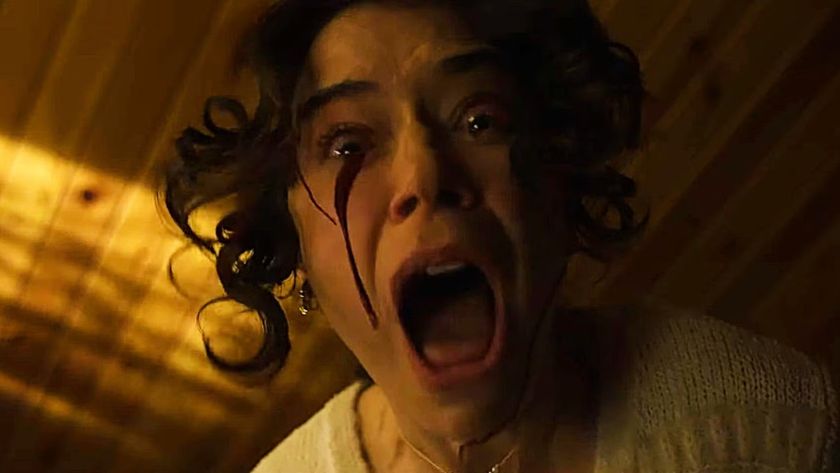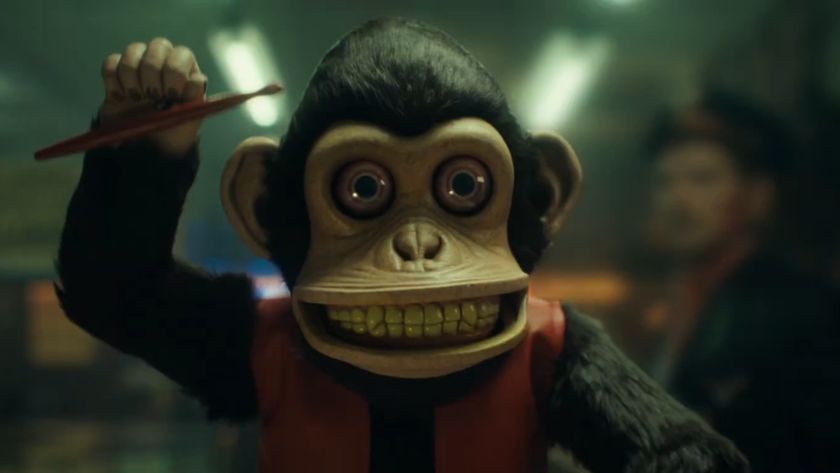"If you start worrying about what other people think you are screwed" - Rob Zombie opens up about his Halloween reboot
The controversial director reimagined John Carpenter's classic as a grungy grindhouse movie - to huge box office success and terrible critical response
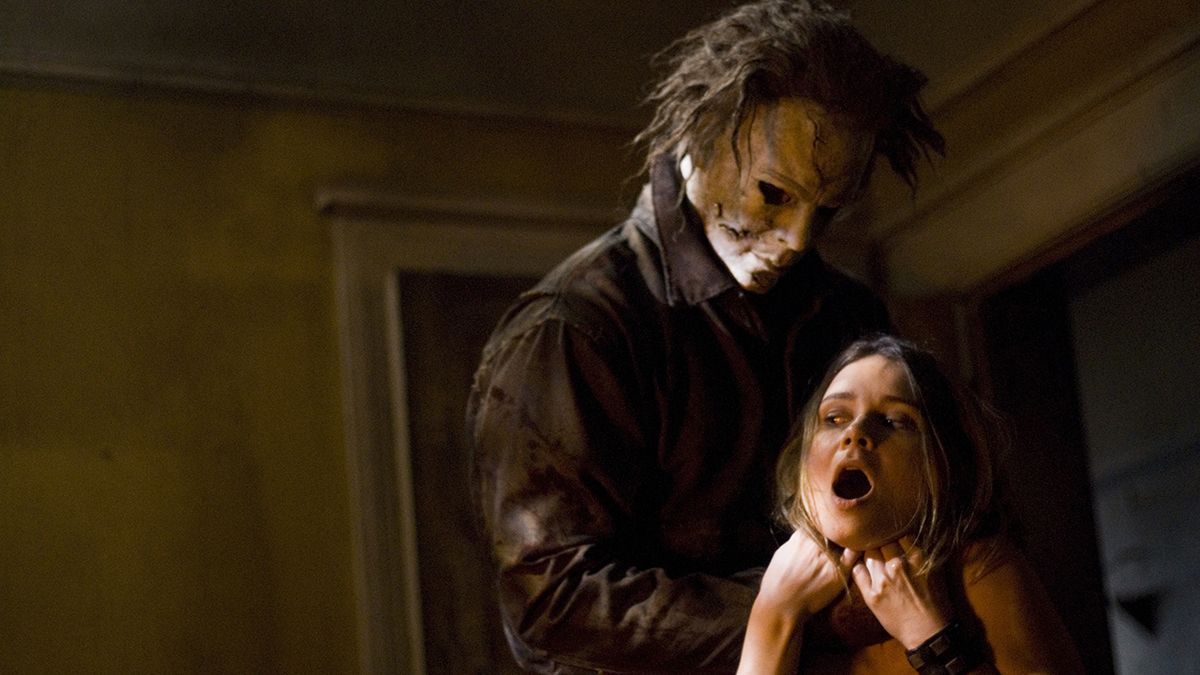
It’s hard to believe that Michael Myers (or 'The Shape' as he is also known) has been embedded in pop culture for 40 years – and yet no single filmmaker seems to know exactly what to do with the mysterious masked marauder. By Halloween 2 (1981) it was revealed Myers was in fact trying to kill his younger sister – giving the character motivation for his initial small-town murder spree.
For tenth-anniversary sequel Halloween 4 in 1988 he was awoken from a decade-long coma to chase after his telepathic niece. However, when audiences got to the sixth film, The Curse of Michael Myers, in 1995 a decision had been made to link Myers to an ancient cult of druids that practised crop harvesting, incest, and blood sacrifice – and not necessarily in that order.
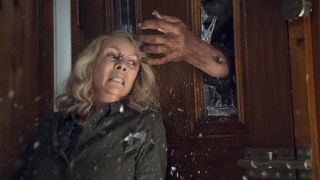
Halloween review: "Fun while it lasts, but unlike the original, it's not a classic"
When Jamie Lee Curtis returned to the series for H20 in 1998 we were back to a sister vs brother showdown – but even that is being retconned for this year’s reimagining, which picks up 40 years after the original and scraps the family link altogether. You can imagine Rob Zombie’s frustration when he was offered the chance to revamp the franchise with a remake…
“Yeah, I mean there was so much stuff in the old films I wanted to avoid,” remembers the director. “They had already made eight Halloween movies – all of different quality – by the time I came along and I took a completely different approach. I wanted to do a new take on the whole series and that is why my Halloween was more of a serial killer movie – we got to look at this troubled kid’s childhood in more detail and what made him Michael Myers. I wanted my version of Halloween to feel a lot more real because the previous films had done everything except for maybe sending him to outer space.”
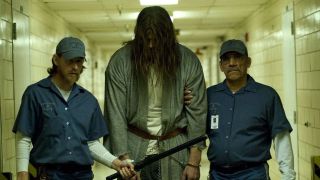
Nevertheless, Zombie’s film still chose to follow the legacy introduced by Halloween 2 in 1981: his Michael Myers is revealed to be chasing his sister and hell-bent on killing her. Moreover, despite his claim to realism, the Halloween remake (which settles into John Carpenter territory in its second half, but with added lewd dialogue, nudity, and gore) veers into the supernatural realm during its ending. Myers is – once again – revealed to be invincible and impervious to pain (taking several bullets to the face, neck and back and a fall from the top of an old dark mansion)…
“Okay, yeah, it was still the story of this guy searching for his sister,” admits Zombie. “But the guy was definitely more real… I didn’t have him appear and reappear in the movie like in the Carpenter film. I wanted to avoid people thinking he was supernatural. But it was not an easy movie to make. I kept being asked, ‘Hey, should we show this to Carpenter or so and so from the original and see what they think?’ And my response was just, ‘What the fuck do I care?’ When I get asked what my advice is in this business I tell people to just focus on what they want to do because if you start worrying about what other people think you are screwed [laughs]. I am oblivious to all that. I love Halloween and I wanted to do my own thing with it. Whether people like my Halloween or don’t like it is irrelevant to me. At least it has my own personal stamp on there.”
Behind the mask
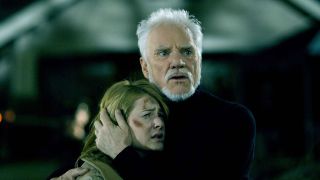
With more backstory (we learn that Myers was abused by a redneck stepfather and took to torturing animals), Zombie’s Halloween certainly changes pace from Carpenter’s movie. However, what many fans disliked was when Halloween settled into familiar slice-and-dice territory – with a group of teens terrorised by the familiar knife-wielding weirdo – few of the characters were especially likeable…
Sign up to the SFX Newsletter
Get sneak previews, exclusive competitions and details of special events each month!
“I think Laurie Strode from my Halloween was a bit boring,” reveals the director. “I mean, she is supposed to be the all-American nice girl and, to me, that is just dull [laughs]. That is why when we did the sequel I made her this really damaged person – because that is infinitely more interesting and cool to explore. But in Halloween, I made a movie about Michael Myers, that came from the pitch of, ‘Okay, what if this was a real man? An actual serial killer? What set him off?’ And then I wanted to think about what Doctor Loomis would be like if he were a real person too – and Malcolm McDowell loved that character. He really understood what I was trying to do and he played it very differently from Donald Pleasence in the original movies…”
A time to kill

Certainly, few fans were able to deny that Zombie’s Halloween was unlike anything else in the series. With a heightened level of nastiness, lengthy scenes of stabbing and mass-slaughter, and a towering Michael Myers (played by former professional wrestler Tyler Mane), this felt like a motion picture beamed direct from a grungy grindhouse cinema on New York’s 42nd Street in the mid-1970s. More video nasty than Carpenter's classic, it was difficult for many Halloween loyalists to recognise the popcorn thrills of old underneath the oddball child psychology and buckets of spilled blood…
“To be honest, I would rather be doing my own thing anyway,” affirms Zombie, whose most recent work includes 3 From Hell – a sequel to 2005’s more acclaimed The Devil’s Rejects. “But I am still proud of both Halloween movies. I prefer the second one, which might surprise people, but the problem is that when you do a remake you can never get a true judgement on what it is you have done. I think it’s the same deal when someone remakes A Nightmare on Elm Street or anything else – it’s just too hard to completely break the formula. Everyone knows Michael Myers and a lot of the fans want the same thing again, but maybe with a small twist – like when they did the eighth one and he’s part of a virtual television programme or something [laughs]. One thing that I got a lot of was, ‘This is what it should have been,’ or, ‘He should have done it like this,’ but if that is the barrier we set then you cannot ever do anything. I really wanted to rework what Halloween was.”
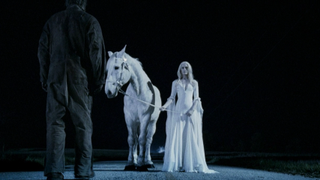
Released on August 31, 2007, Rob Zombie’s Halloween had enough curiosity around it to be the highest-grossing opening of all time during the American Labor Day weekend – a title it still holds. Cutting its way to the number-one spot in the United States, its enemy was not the usual franchise loyalists crowing against it, but rather the critics – negative feedback meant that, even with an eventual $80 million gross, Halloween came and went from the theatres remarkably fast. Nonetheless, Zombie returned to his hit property for the 2009 follow-up.
“Yeah, I mean that was a tough decision,” reasons the director. “For a start, I was really burned out after doing Halloween. It was a tough, tough movie to make. And I tried to make it look like we killed him in the end. But, yeah, eventually I had to admit, ‘Nah, he just got hurt. He was never really dead’ [laughs]. I was excited to do a sequel, though – mainly because if the first film was about Michael and how he became this famous murderer, the second one could be about Laurie and how this event had really messed her up. The original Halloween 2 never did that. And now that I had established this universe I felt like I could do anything I wanted with it.
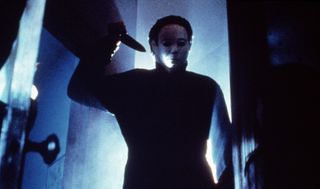
The 25 best horror movies of all time, whatever your taste in terror
Unleashed to less than half the box office of its predecessor, Halloween 2 put an end to one of the strangest interventions in a successful film franchise. Played as gritty, gross-out retro-shockers, Zombie’s attempt to turn Michael Myers from a supernatural figure of dark fantasy to a hulking giant of torture and torment was so leftfield that it is a surprise it ever got greenlit. By the time of Halloween 2, the Zombie version of Myers is even controlled by a vision of his dead mother on a white horse – veering so far into the supernatural that any claims of reality are decidedly dubious.
Unsurprisingly, Zombie feels his time contributing to teen-kill mythology is over. “I feel like I said everything I wanted to,” he shrugs. “When I finished Halloween 2 I thought, ‘There is no way I can take this into a Halloween 3’ – and then I heard they were going to do something different with the next one anyway. And that is always the challenge – to keep reinventing this character that we all love.” As we enjoy the return of Jamie Lee Curtis and another promised fresh start for Michael Myers, at least for a short time we got a glimpse of Halloween as a more radical and revolting proposition than any previous horror redux had dared. Trick or treat, anyone?
This feature originally appeared in our sister publication, SFX magazine. Pick up the latest copy now or subscribe so you never miss an issue.
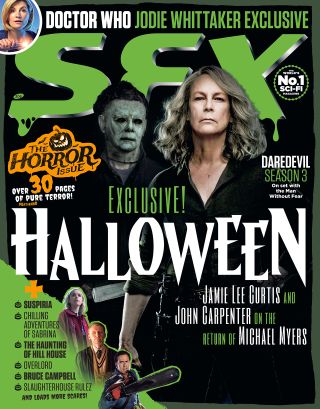
Most Popular





